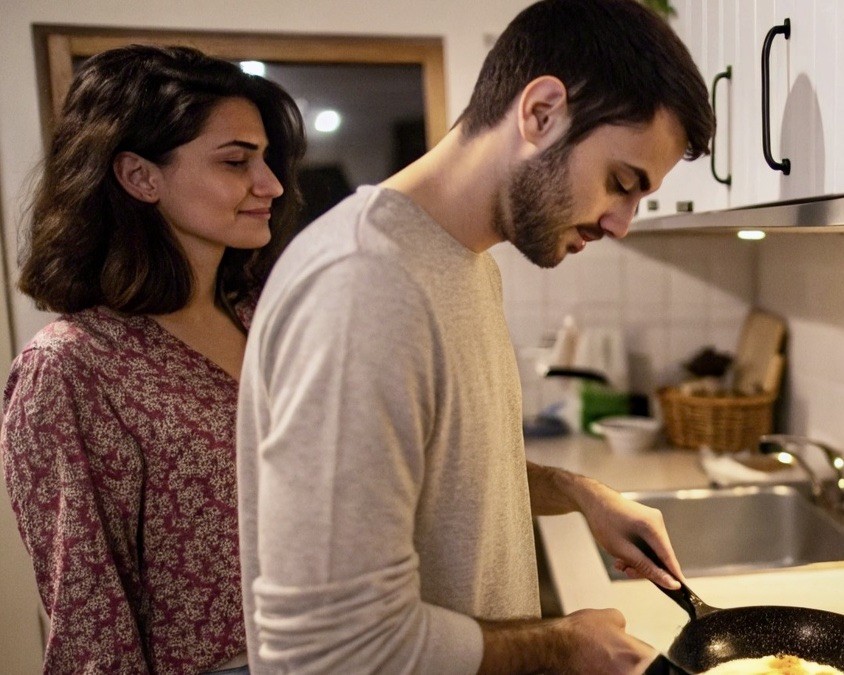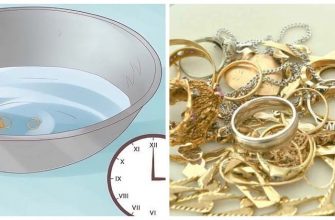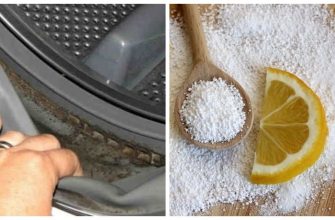There Are Words That Split Your Life Into “Before” and “After.”
I was in Dima’s kitchen. For the first time. He was making an omelet — nervous, trying hard. It was sweet. I watched him and thought, God, he’s such a good guy.
Then he said, “My mom’s coming soon. She’s really looking forward to meeting you.”
I nodded. Fixed my hair. Smoothed my blouse. Thought: Just smile. Be friendly. It’ll be fine.
Then the doorbell rang.
Dima ran to open it. I heard voices in the hallway. Hers — sharp, confident. His — quieter, almost apologetic.
And then she walked in.
Tall. Thin. Perfect hair. Expensive suit. And a look in her eyes like a pawn shop appraiser checking the value of cheap jewelry.
“Mom, this is Lena,” Dima said.
I stood up, offered my hand.
“Nice to meet you. Dima talks about you all the time…”
She shook my hand fast, like she was scared to catch something.
“Svetlana Borisovna,” she said curtly and sat down across from me. “Where do you live? With your parents?”
“No. I have my own apartment.”
“And whose name is it under?”
Dima froze, spatula in hand. The omelet hissed in the pan. And in that moment, I understood everything.
“It’s under my name,” I said softly.
“Got it,” she nodded. “And where do you work?”
Then came the rapid-fire questions. My job. My salary. My education. What my parents did for a living. Whether I had loans. Debts. If we planned to have children.
Dima tried to cut in.
“Mom, please…”
“Quiet, Dmitry. The adults are talking.”
Adults? He’s thirty-two!
I answered everything. Honestly. Politely. And thought the same thing over and over: What am I doing here?
“And where do you vacation?” she kept going.
“Last year, I went to Turkey.”
“Beach resort? All-inclusive?”
“Yes.”
She wrinkled her nose, like I’d said something inappropriate.
“Dima and I prefer cultural vacations. Museums. Theater.”
I nodded, but remembered how Dima once told me he dreamed of lying on a beach in the Maldives, doing absolutely nothing.
The omelet had long gone cold. Dima sat pale, staring at his plate.
“And what do your parents think of your relationship?” came the next blow.
“They’re happy for me.”
“I see. Do they help you financially?”
“Sometimes…”
“How often is ‘sometimes’?”
I felt myself blush. From shame, from anger, from being dissected like an insect.
“Mom…” Dima tried again.
“I’m not being rude,” she said innocently. “I’m just asking. My son’s nearly thirty-three. Time for serious decisions. And you need to know everything to make the right choice.”
Serious decisions. Like a verdict being handed down.
“And kids? When are you planning to have them?”
“We haven’t discussed that yet.”
“What do you mean, you haven’t? You’re twenty-eight! Your clock’s ticking!”
And who would take care of the baby? Hopefully not her. She had her own life. Her own plans.
Dima said nothing. Just sat there. And I realized: he’d never say anything. He’d sit there, silent, while I fought off his mother alone.
“Listen,” I said finally, “maybe we could just talk? You know, get to know each other?”
She looked at me like I’d suggested dancing on the table.
“What’s there to talk about?” she shrugged. “Everything’s already clear.”
Clear that I wasn’t good enough. That my apartment was under the wrong name. That I vacationed in the wrong places.
“Dima, walk me to the door,” she said. “We’ll talk in the hallway.”
They left. I sat in the kitchen alone. With the cold omelet and burning cheeks.
I heard them in the hall. Her voice — calm, firm. His — soft, defensive.
“…think seriously about this…”
“…she’s not your level…”
“…what if she gets pregnant on purpose…”
The door slammed. Dima came back in. Sat down across from me. Silent.
“Well?” I asked.
“She’s just… worried about me.”
“I see.”
“Lena, don’t be upset…”
“Why would I? Standard introduction. Just a normal screening process.”
He sighed. Took my hand.
“She’ll come around. She just needs to get used to you.”
Get used to me. Like new wallpaper.
That night, walking home, I thought: marriage isn’t just about love. It’s about family. About new relatives. About constantly proving you’re worthy. That you belong.
And the worst part?
Dima never asked if I liked his mother. He only cared if she liked me.
And like a fool, I still hoped next time would be different.
It wasn’t.
A week later, Dima called: “Mom’s inviting us for Sunday lunch.”
Inviting. It sounded friendly. Maybe she wanted to try.
I bought wine, chocolates, flowers. Told myself: Be polite. Be grateful.
Her apartment was like a museum. Spotless. Sterile.
“Come in. Take your shoes off. Wear these.” She handed me pink rubber slippers. With unicorns.
“They’re guest slippers,” she said.
On the table — white tablecloth, crystal glasses, silverware.
“Sit here,” she said. Dima sat next to me. She sat across. Like it was an interrogation.
“So, how are things?” she started.
“Good, thank you.”
“Work okay? No layoffs?”
“No, not yet.”
“Salary on time?”
Again with the money.
“Mom, let’s just eat,” Dima said.
“What? I’m just asking about my future daughter-in-law.”
Future daughter-in-law. She’d already decided.
She served the chicken. Gave herself the breast, Dima the drumstick, and me — two little wings.
“For your figure,” she said. “Healthier.”
For my figure? Am I fat now?
“Mom…” Dima blushed.
“What, Dmitry? Girls should watch themselves. Otherwise they’ll get married and let themselves go.”
Relax. Get fat. Lose shape.
“And when will you show me the recipe?” I asked, trying to be polite.
She looked at me like I was crazy.
“What recipe?”
“For the chicken. Dima said…”
“Oh… it’s just salt and pepper. Oven. Nothing special.”
Salt and pepper. Oven. Great culinary secret.
“Any spices?”
“Dima doesn’t like spicy.”
Dima told me he loves spicy food. But who asked me?
We ate in silence. Chicken was good, but wings… wings are just bones.
“Lena, do you know how to cook?” she asked suddenly.
“Yes, of course.”
“What can you cook?”
“Soups, cutlets, pies…”
“Pies? What kind?”
All kinds. Meat, cabbage, sweet.
“Do you make the dough yourself or buy it?”
“I make it.”
“Hm… then why is Dima so skinny?”
Why is he skinny? Because I don’t feed him?
“Mom…” Dima tried.
“A good wife should fatten her husband up. Look at yourself — skin and bones.”
He weighs 180 pounds at 6 feet tall. He’s fine.
“Katya’s husband, now that’s a man,” she said. “Solid.”
Katya’s husband is over 260 pounds. Can barely walk.
“And you, Lena, planning to get married?”
“Well, we’re…”
“Because time’s ticking.”
I’m twenty-eight. Not sixty.
“And kids? When? I want to be a grandma. While I’m still young.”
She’s fifty-four.
“Mom, we’re not ready yet…”
“And when will you be? When I’m seventy?”
“You know,” I said, “maybe we could not talk about this now. We haven’t decided…”
“What’s to decide? You’re living together. Sleeping together. What’s missing? A piece of paper?”
Sleeping together. Like we were doing something wrong.
“Mom, enough…”
“What? I’m just being honest. Or am I wrong?”
Her truth. Her view of life.
After lunch, she dragged me to the kitchen to wash dishes. Dima stayed in the living room watching TV.
“Let’s have a heart-to-heart,” she said.
Heart-to-heart. With plates in our hands.
“Dima’s a good boy. But naïve. Trusting. I’ve had to protect him from many girls… gold-diggers.”
Gold-diggers? Dima rents his apartment, drives an old car, works an ordinary job.
“And you… what are you after?”
“Nothing,” I said quietly.
“Oh, come on. Everyone’s after something. You have an apartment. A job. Why do you need Dima?”
Why? Because I loved him. Because I wanted to wake up next to him. Because he made me coffee in the mornings and laughed at my jokes.
“I love him,” I said.
“Love,” she scoffed. “Love fades. But kids, bills, and everyday life stay.”
She kept going: “And what about me? Are you ready to deal with me for life? Is he ready to deal with your mother?”
My mom? My mom would never interrogate him like this.
“Look, I don’t dislike you personally,” she said. “You’re a nice girl. But…”
There’s always a but.
“I just want the best for my son.”
And clearly, I’m not the best.
We went back to the living room. Dima was napping in front of the TV. His mother started knitting. Then said sweetly:
“Let’s watch a movie together.”
We sat there watching some old Soviet film about love. Ironically.
And I thought: What’s next?
I knew the answer.
It’s only going to get worse.
And it did. Just a month later.
A month later, Dima suggested we visit my parents.
“Let’s introduce them to my mom. Maybe in neutral territory, things will go better,” he said.
I was naive enough to believe him.
My parents are simple people. Mom’s a retired schoolteacher. Dad’s a mechanic. They live in a small two-bedroom apartment on the edge of the city. They welcomed Dima’s mom warmly—mom cooked everything she could, dad even brought out the expensive cognac he’d saved for special occasions.
Svetlana Borisovna stepped into their apartment and immediately froze.
She looked around at the linoleum floors, the old furniture, the handmade curtains.
“Oh… cozy,” she said.
Cozy. But her tone said, Poor.
We sat down at the table. My mom fussed over the food, dad poured drinks, Dima sat silently, feeling the tension.
“And where do you work, Svetlana Borisovna?” my mom asked politely.
“I’m a deputy manager at a bank,” she said.
“Wow! Important job,” dad said sincerely.
“Very. Not everyone’s capable of it,” she replied coolly.
And then she turned to my mom.
“And you?”
“I’m a teacher. Retired.”
“Pension, huh? Is it enough to live on?”
My mom blushed. My dad frowned.
“We get by.”
“Must be tough for simple folks these days,” she sighed.
Simple folks. Again.
“Is this your apartment?” she pressed on.
“Yes,” dad answered.
“Mortgage?”
“No, we saved up.”
“Saved up? On a teacher’s salary?” She looked at them skeptically.
“I tutored on weekends,” my mom explained gently.
“Ohhh… side income. I see.”
Her voice said it all: Poverty.
Mom offered her homemade apple pie. Svetlana Borisovna declined.
“No thanks, I don’t eat carbs. Watching my figure.”
Watching her figure. While my mom stood there, embarrassed, after baking all night.
“Dima loves sweets,” mom said softly.
“He shouldn’t,” she snapped. “We have diabetes in the family.”
First time I’ve heard that.
“Since when?” Dima asked.
“Predisposition,” she said firmly.
My dad poured more cognac. She covered her glass.
“No thanks, I’m driving.”
“But Dima’s driving,” my dad said.
“Dima’s not confident in city traffic.”
What? He drives perfectly. But of course, Dima said nothing.
“And you, Nikolai Petrovich? You drive?”
“No need for it.”
“Do you have a license?”
“No.”
“Hmm… then how do you handle… men’s responsibilities? Like hauling stuff, trips to the country…”
“Bus. Or friends help.”
“Bothering your friends? Isn’t that inconvenient?”
Bothering friends. Like my dad was incompetent.
My mom tried to change the subject.
“What do you enjoy, Svetlana Borisovna? Music? Movies?”
“Serious things. Opera. Classical music. Not this pop nonsense.”
“And you?” she asked my mom.
“Whatever’s on the radio.”
“I see. Different tastes.”
Different tastes. Hers correct. Ours—wrong.
When we finished eating, my mom and I cleared the table. Svetlana Borisovna went to the bathroom.
My mom whispered: “What is this woman? Are you sure, honey?”
“About what, Mom?”
“About him. About all this.”
I didn’t answer.
Svetlana Borisovna returned, glanced at her watch.
“Dima, time to go. I have work tomorrow.”
We all had work tomorrow. But when she said it, everyone obeyed.
My parents smiled, thanked her politely, like good people do. But I saw confusion in their eyes.
In the car, silence.
Dima drove. His mother examined her manicure.
“Nice people,” she said at last. “Simple. Very simple.”
Simple.
“And their apartment… modest.”
Modest. Tiny. Poor.
“And… it’s clear they didn’t have an easy life.”
Unlike her.
“Mom,” Dima said at last. “Why are you like this?”
“Like what? I didn’t say anything offensive.”
No. Not offensive. Just brutally classist.
Later that night, I called my mom.
“Well? What do you think of Svetlana Borisovna?” I asked.
My mom sighed.
“I don’t know, sweetheart. Strange woman.”
“That’s putting it mildly.”
“Lena… are you sure?”
Sure about what? About Dima? Or about spending the rest of my life tolerating his mother?
“Mom… I don’t know.”
“You do,” she said softly. “You’re just scared to admit it.”
Scared. She was right. Scared of losing Dima. Of being alone. Of thinking no one else would love me.
“And Dima?” my mom asked gently. “Does he stand up for you?”
I was quiet.
“No.”
My mom sighed.
“So… you’re alone against her. And you’ll be alone forever. Fighting this battle.”
Forever.
My dad? He said just one thing:
“If a man can’t protect his woman from his own mother… he’s not a man.”
A week later, Dima and I had the conversation.
“Dima, we need to talk.”
“About what?”
“Your mom.”
He winced.
“Lena… what now?”
“What now?” Like I was always complaining.
“She doesn’t accept me, Dima. And she never will.”
“You’re exaggerating.”
“I’m not. I see it.”
He looked at the floor.
“Dima, you need to choose. Her, or me.”
“What? How can I choose? She’s my mom!”
“And who am I?”
“You’re my… girlfriend.”
Girlfriend. Not fiancée. Not future wife. Just… girlfriend.
“Dima, I can’t do this. Every time I see her, it’s torture.”
“She’ll get used to you.”
“No. She won’t.”
“What do you want from me?”
“I want you to set boundaries. Tell her that I’m your family now. And she needs to respect that.”
He looked at me like I’d asked him to move mountains.
“She’s all alone, Lena. I’m all she has.”
“And I’m nothing?”
He said nothing.
Eventually, he promised to talk to her.
But I knew he wouldn’t.
He couldn’t.
A few days later, he came home with this:
“Lena, Mom has a job offer for you.”
“A job?”
“At her bank. There’s an open cashier position.”
Cashier. In her bank. Where she could monitor me.
“Pay’s decent,” he said. “And she can… keep an eye on you.”
Keep an eye on me. Like a child.
“Dima, do you understand what’s happening?”
“What?”
“She wants full control over me.”
“Oh, come on… she means well.”
She means control.
“I’m not taking that job.”
“Why not?”
“Because then, I’ll stop being myself.”
He didn’t understand.
And yesterday, she called me herself.
“Lena, we need to meet. Alone.”
We met in a cafe. She was dressed impeccably, as always.
“Let’s talk like adults,” she said.
“You’re a nice girl,” she started, “but not for my son.”
“Why?”
“You’re from different worlds.”
Different worlds.
“Dima’s used to a certain level of life. To culture. To intelligence.”
To intelligence. I guess I was uncultured trash.
“Your parents… sweet people. But not our circle.”
“What are you suggesting?”
“Let him go. While it’s still easy.”
“And if I don’t?”
“Then I’ll make your life hell.”
I believed her.
“You have a week,” she said, standing up.
A week. An ultimatum.
Now I’m home, thinking.
Marriage isn’t just about love. It’s about families. About the fact that when you marry a man, you marry his entire world.
And his world has rejected me.
The worst part? He won’t change it.
I’m not his priority.
I’m second place.
Tomorrow, I’ll call Dima. I’ll say we’re breaking up.
He’ll ask why.
And I’ll tell him the truth:
Because he never became a man.
Because there’s only room for one woman in his life.
And that spot’s already taken.
By his mother.
And she has no intention of giving it up.














